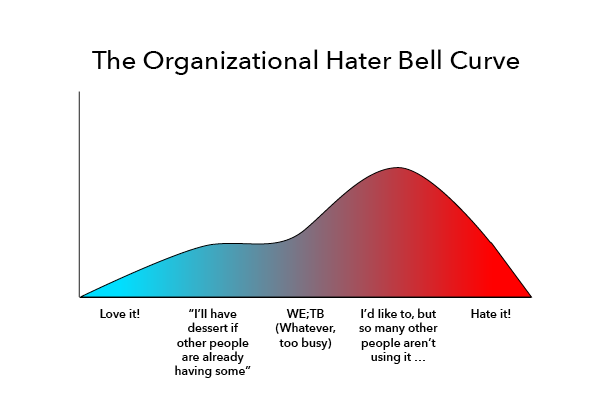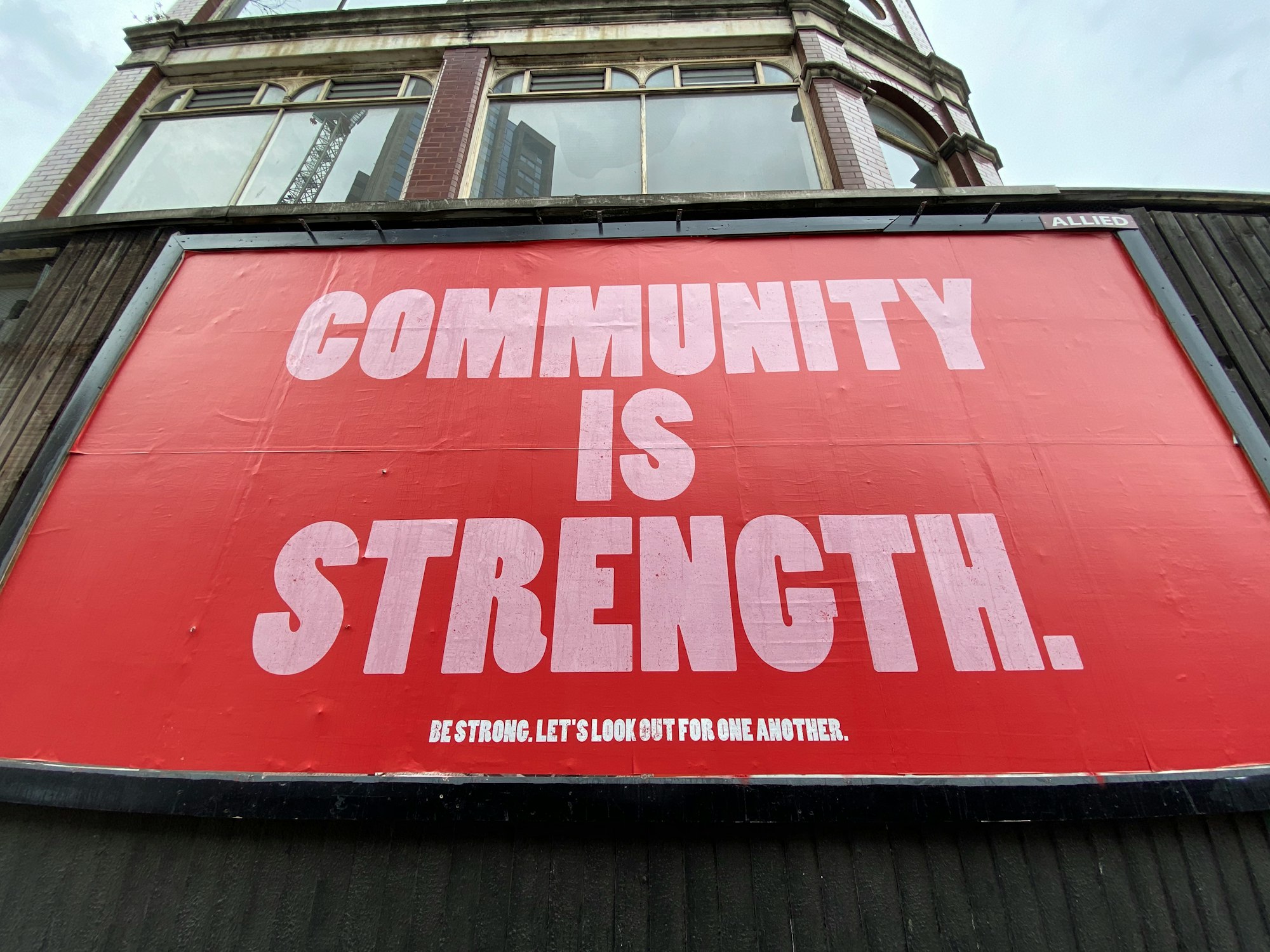
I came up with this idea after seeing similar reactions at my organization to three very different changes:
- the official rollout of a new museum-wide financial software system
- the arrival of a new department head with a radically different vision then their predecessor
- trying out an unofficial project management software system
In each case, what I assumed was a generally optimistic take on change (sure, why the hell not? let's give it a try) from myself and others I know at my organization contrasted with eye-rolling, tsk-ing, and downright hostility of some of my colleagues. I mean, not quite torches and pitchforks, but there was more than enough plenty of anger and resentment to go around.
Seeing this reaction to people and to software systems made the connection clear. At museums, are we really surrounded by haters? Do people ruin everything?

Surrounded might a strong word. It's more like there are enough haters in almost any organization to make a virtual fence around your best-laid plans. The problem isn't your project or vision per se (let's assume your idea isn't completely crazy). In fact, the haters might even have a point, or several, against said new person or idea.
The issue is when the haters get what I call soft veto power, enough to disconnect the wires of change. If your idea needs everyone on board, all it takes is one person to take it down. At my organization, the official software system was a top-level directive; people had to use it. The unofficial project management system, on the other hand, needed everyone's buy-in. It didn't stand a chance.
- I'm just trying to my job, not deal with computer systems (because in 2016 they do their museum work with an etch-o-sketch™

- [Other key department] will never adopt it.
- [People who support your new system] don't know what they're talking about.
- We don’t have the resources to do it.
- Who are you again?
It's not hopeless. My handy diagram above shows that most people aren't haters. In fact, you'll always have at least a few fellow enthusiasts for change, because that's the kind of great people who are all over the place in our field. The key, then is the people in the middle:
- The "I'll have some if other people are having it": you need to hook them up with the lovers, the enthusiasts, and demonstrate why the new system is useful. You won't win all of them over, but if you get some more enthusiasts you're countering the haters.
- The WE;TB (Whatever, Too Busy) need to be shown that the new system can save them time. This is harder than it sounds, because any new system needs to be taught, which takes time and effort, and repeated until it becomes learned behavior, which also takes time. You'll need to keep on these people, gently nudge them into using the new system, maybe even nicely bribed into trying it out. Above all, don't alienate them.
- The "I'd like to, but so many other people aren't using it …" get swayed by the haters. They're the people who might need high-level direction to try something new. Maybe find a strategic document that demonstrates institutional interest, if not outright approval, of the new system. Point out to them that other new systems are taking root around the institution.
Above all, don't be arbitrary, don't be deceitful. Practice empathy with your hater colleagues. Listen, even to their negativity, and see if there's anything in there worth considering. Make sure the new system really is doing what you said it would. If you get negative feedback, be open-minded yourself and take it seriously--can the system be improved? Is it flexible? These are all traits you want to demonstrate. And getting real-world results won't hurt.
I won't pretend that you will definitely get change done without high-level approval. Change doesn't always progress in sensible ways. Your organization might require it, or maybe going to rogue is easier where you work. Maybe you can even create an unofficial start-up inside of your org. The question is, are you going to try? You always want to have an empathetic, optimistic response ready. Say that your pilot program is an opportunity to demonstrate its effectiveness, and that you have the best interests of the institution at heart.
And remember that a new system being killed isn't the worst case scenario. Being in an organization that isn't growing, or even trying to grow, to improve, when that's all you want--now that's the worst-case scenario. And let's face it, do you want to be part of a place like that?
So good luck, and may all your bell curves be filled with love.






